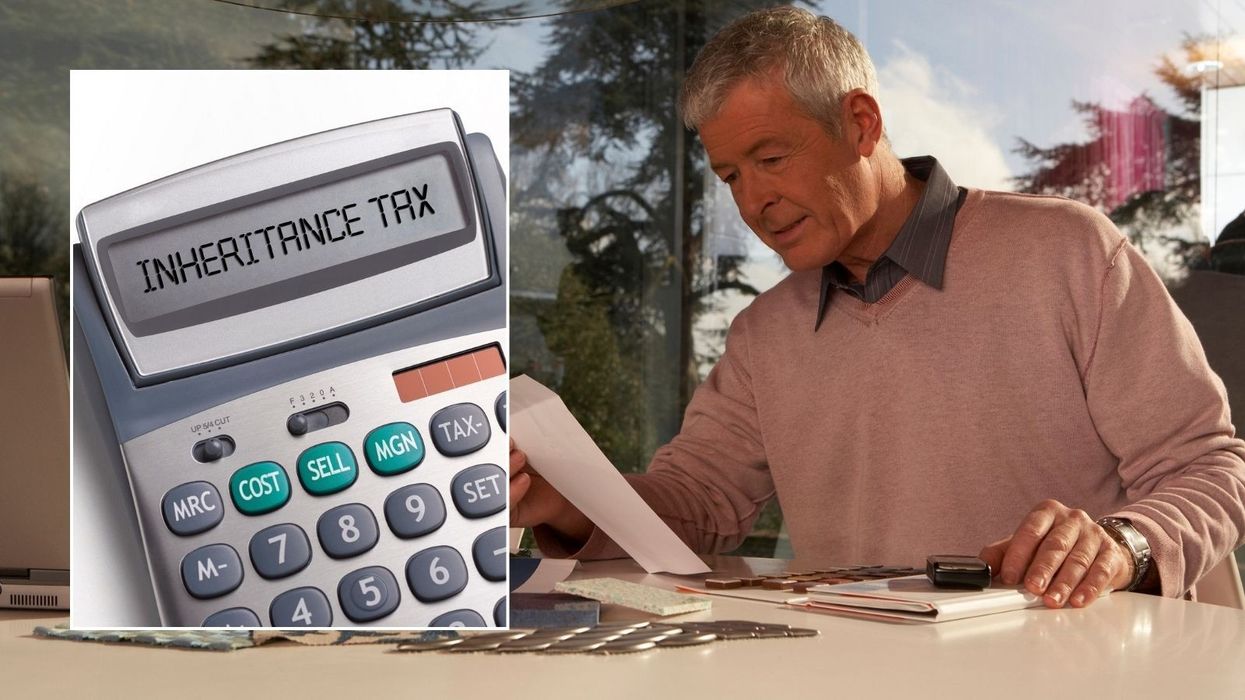'You can give away as much money as you like without worrying about inheritance tax' - How to gift tax free

An expert has shared a way families can cut down their inheritance tax bill
| GETTY
As Britons anticipate potential tax rises at the upcoming Autumn Budget, an expert has shared one way that families can cut down their inheritance tax bill
Don't Miss
Most Read
Latest
Gifting from surplus income rather than assets can mean Britons can pass on a lot of their money tax free and not have to worry about inheritance tax.
The inheritance tax personal allowance gives each person a total of £3,000 worth of gifts to give each tax year without them being added to the value of one's estate, but there's a way to gift more without being taxed.
For marriage or civil partnership celebrations, people can give up to £5,000 tax free depending on their relationship with the giftee.
Myron Jobson, Senior Personal Finance Analyst, at interactive investor, said: "It is becoming increasingly clear that a bitter cocktail of tax rises and public spending cuts will be the order of the day at the next fiscal event in October to get the nation’s finances back on an even keel.
"With tax rises seemingly on the horizon, effective tax planning has never been more crucial. Now is the time to evaluate and take steps to bolster your tax position and make the most of the allowances available to you."
Surplus income is any income that is leftover once all of someone’s outgoings have been paid.

Each year individuals can give away £3,000 tax free and make as many gifts of up to £250 to different people as they would like
|GETTY
Income isn’t only employment earnings and pension payments, it also includes any monies that one may receive in the form of interest, ISAs, dividends and rental income.
If people can afford to make regular financial gifts without it affecting their everyday lifestyle, the most common next step is to set up a regular payment plan through your bank.
Jobson said: "You can give away as much money as you like – without worrying about IHT – so long as payments are regular, and you can afford to make them from your normal expenditure. This can be a game-changer in estate planning."
How to claim
He continued: "The gifts must form a regular pattern. This means the giving needs to be regular – whether that's monthly, quarterly, or annually. Sporadic gifts are unlikely to pass muster.
"These gifts must come from your income, not from your capital. After making the gift, you should have enough income left over to maintain your usual standard of living.
"These demands mean that if you want your gifts to be exempt from IHT, the onus is on you to ensure that the executors of your will have all the information they need to satisfy HMRC.
"This means keeping detailed records of your income, outgoings, and the gifts themselves."
Giving money away whilst one is still alive is the "most straightforward way" of reducing a potential IHT bill, he said.
Each year individuals can give away £3,000 tax free and make as many gifts of up to £250 to different people as they would like.
There are also special allowances for weddings; people can give a child £5,000 when they marry, £2,500 to grandchildren or great-grandchildren or £1,000 to anyone else.
Any lump sums given in excess of the allowances are considered potentially exempt transfers, which means the giftors must survive seven years before the gift becomes totally tax free.
Complex situations often require professional financial advice to navigate effectively.
Inheritance Tax receipts for April 2024 to July 2024 are £2.8billion, which is £200million higher than the same period last year, HM Revenue and Customs latest figures revealed.
The Office for Budget Responsibility forecasts that the share of deaths resulting in the payment of inheritance tax will rise to 6.3 per cent by 2028–29, the highest level since the 1970s.
That proportion was as low as 2.7 per cent in 2009/10. Revenue from inheritance tax and its predecessors has increased over time in real terms, from around £2billion in 1980/81, to £7.5billion in 2023/24, and will reach almost £9billion by 2028/29 (all amounts in 23/24 prices).
Alastair Black, Head of Savings Policy at abrdn, said: "Without any IHT reform, these numbers will only continue to rise. In fact, the OBR has projected receipts could reach £9.7billion by the end of the decade."










